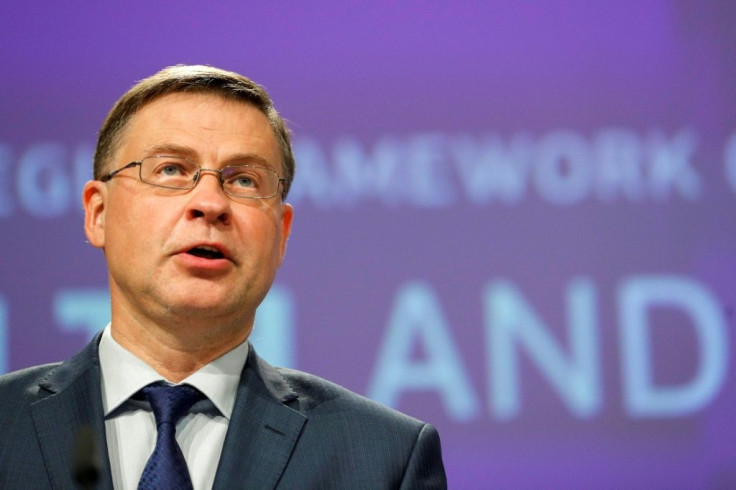EU, US Look To Repair Relations At Tech Summit
US and EU officials opened their two-day, high-level meetings in Pittsburgh on Wednesday, an effort to repair relations damaged under the administration of former president Donald Trump and boost cooperation on technology issues.
The inaugural meeting of the Trade and Technology Council (TTC) comes as industries worldwide grapple with shortages of crucial semiconductors and is being held in Pittsburgh, a Pennsylvania city that was once the heart of the American steel industry and has since evolved into a tech hub.
The ministers met at Mill 19, a massive World War II-era munitions factory and later steel mill on the shores of the Monongahela River that has been reborn as an advanced robotics facility for researchers from Carnegie Mellon University.
The shadow of steel hangs over the meetings in other ways as well, especially as the two sides have yet to resolve a conflict over Trump-era tariffs on steel and aluminum.
The former president cited US national security concerns in June 2018 when he imposed punitive tariffs of 25 percent on steel imports and 10 percent on aluminum, which have been a thorn in the side of trans-Atlantic relations since.
However Washington and Brussels have made it clear that a resolution to that conflict would not be part of the discussions in Pittsburgh.

The TTC was born out of President Joe Biden's summit in Brussels in June, when he attempted to repair relations and reached a deal to defuse the longstanding Airbus-Boeing dispute, with the two sides suspending tariffs.
But more recent stumbles have heightened tensions, including the sudden US exit from Afghanistan at the end of August, and the announcement of a security pact between the United States, Australia and Britain that Europe viewed as a snub.
For Washington, the talks are led by Secretary of State Antony Blinken, Trade Representative Katherine Tai and Commerce Secretary Gina Raimondo, and on the European side by EU executive vice presidents Margrethe Vestager and Valdis Dombrovskis.
The White House said the United States and EU are "indispensable partners" that will aim to "promote shared economic growth" for workers in both economies.

Chief on the meeting's agenda will be the global shortage of vital computer chips known as semiconductors. Demand for electronic devices of all kinds has exploded since the start of the Covid-19 pandemic, as more people work, study and find entertainment at home.
Semiconductor manufacturers at times have had to temporarily close their factories due to Covid-19, leaving them struggling to meet global demand and hamstringing industries including automakers.
A draft of the meeting's communique seen by AFP touted a joint commitment to "rebalancing of global supply chains in semiconductors with a view to enhancing respective security of supply" as well as boosting capacity to produce chips domestically.
Raimondo said the semiconductor shortage is both an economic and a national security concern, and called for investments in domestic manufacturing in the EU and United States.
"America created the semiconductor industry" and at one time "produced nearly 40 percent of all chips," she said in a speech to the Economic Club of Washington on Tuesday.
"Today, we account for only 12 percent of global production and we produce zero percent of the most advanced chips."
She called on Congress to pass legislation that would invest $52 billion in domestic chip manufacturing, saying it will "protect Americans from similar supply chain disruptions in the future."
In addition to semiconductors, the sides are grappling with how to work together to counter China and unfair trade practices such as industrial subsidies and forced technology transfer.
The Biden administration so far has continued Trump's strong line towards Beijing, keeping in place punitive duties on Chinese goods.
While Dombrovskis stressed that the TTC was not intended to target a particular country, the statement refers to efforts to counter "non-market economies" -- diplomatic code for China -- as well as working on investment and export controls.
The EU and United States pledged to work closely to protect their workers from "unfair trade practices... that are undermining the world trading system," according to the draft statement.
© Copyright AFP 2024. All rights reserved.





















